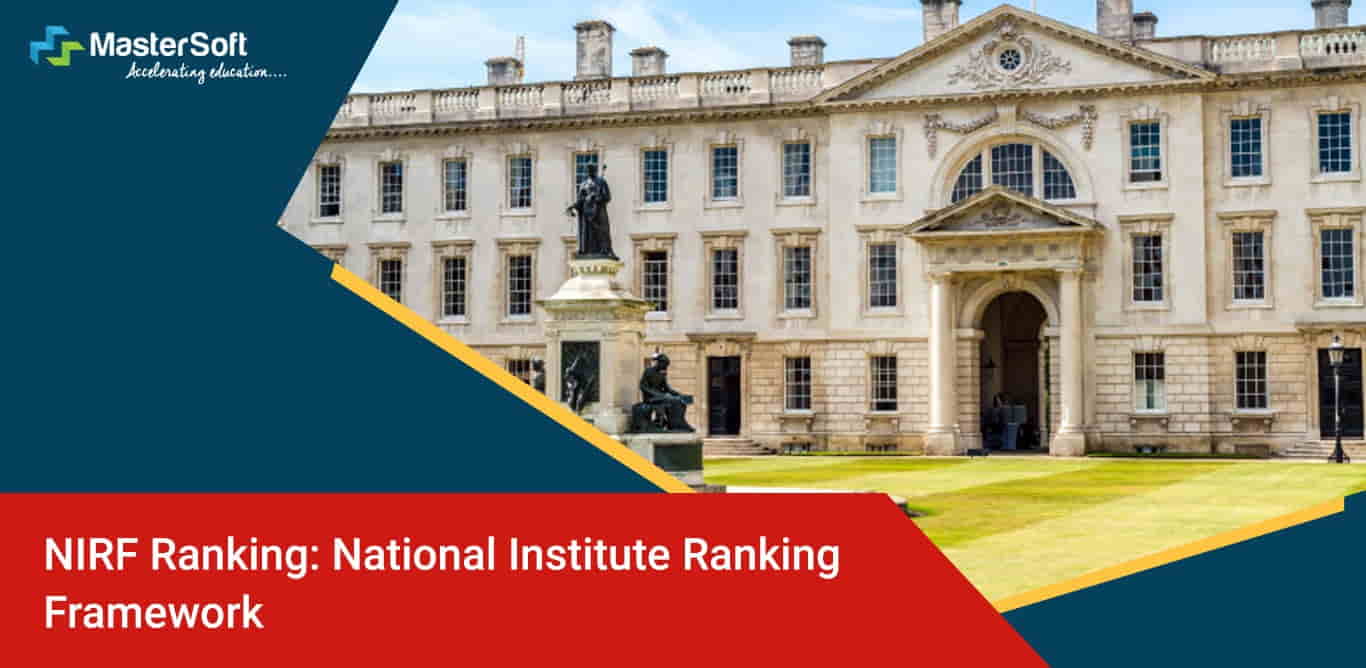Updated On 06, Feb 2025
A degree ultimately proves to be inconsequential and useless if the degree holder does not possess the skills to back it up. This phenomenon has extended far beyond being just a mere trend and characterises the ground reality of most industries and employment opportunities.
Fresh graduates settling for low-paying jobs or working in a field different from their area of study or facing unemployment is a prevalent issue among Indian youths. That is why a well-structured skill framework like NSQF is necessary that can ensure a cohesive educational and skill development of learners.
But what is NSQF? Let us find out:
What is NSQF?
NSQF, or National Skills Qualifications Framework, is a skill-based framework that has been developed according to a structured series of skills, knowledge, and competencies. It includes ten levels, wherein level one denotes the lowest complexity of particular aptitude, whereas level ten denotes the highest complexity.
Besides, the need for the framework arises from the existing segregation between general and vocational education. Furthermore, the misconception about vocational education and unclear progression pathways between the academic system is a major concern as well.
However, the framework facilitates a systematic structure for the timely creation and maintenance of progression pathways. Consequently, students can move through general academic and vocational courses. Simultaneously, it aims to align the Indian qualifications to international qualifications through strategic bilateral and multilateral agreements.
.webp)
Objectives of the National Skills Qualification Framework (NSQF)
Structured Skill Assessment
The National Skills Qualifications Framework provides a carefully designed structure to assess and certify competencies and skills across various areas. It also enhances the overall qualifications of an individual, enabling organisations and employers to determine various qualifications.
Increasing Job Readiness
One of the most primary objectives is to make learners job-ready by teaching them in-demand and industry-specific skills. Besides, the NSQF-certified courses and training programs prepare individuals to face the 21st-century workplace.
Internationally Recognised Qualifications
The framework promotes the national and international mobility of individuals by aligning the qualifications with the international standards. In effect, it will allow skilled workers to go abroad and pursue employment in their respective fields.
Outcome-Based Development
An outcome-based mechanism is a key aspect of the framework, which allows learners to progress through different competencies (skill levels), depending on their aptitude. As a result, they are able to inculcate core skills, helping them advance in diverse careers.
Key Features of NSQF
1. 10-Level Qualification Structure
Ten levels of skill are central to NSQF, and it standardises, assesses, and recognises them based on:
- Skills: Practical ability
- Knowledge: Theoretical understanding
- Aptitude: Ability to execute tasks
- Level 1 — Basic Skills (Entry-level jobs)
- Level 2 — Semi-skilled workers
- Level 3 — Skilled workers
- Level 4-5 — Supervisory roles
- Level 6-7 — Graduate-level qualifications
- Level 8-10 — Expert-level problem-solving skills
2. Recognition of Prior Learning (RPL)
Recognition of Prior Learning validates an individual’s previous learning experience and existing skills and knowledge.
Skill development initiatives such as Pradhan Mantri Kaushal Vikas Yojana and Sector Skills Councils implement RPL. The process includes assessment, gap training, and certification, leading to better employment opportunities.
3. Mobility Between Education and Employment
Vocational education has always been separate from the traditional education system in India, wherein theoretical teaching and learning took precedence. However, a decisive shift towards skill-based education has been quite evident in the last decade or so.
The National Skills Qualifications Framework has provided a strategic medium that facilitates a smooth transition between education and employment. For instance, a higher secondary or college student can pursue an NSQF 4-5 vocational course and start working or continue their higher education.
On the other hand, an individual with no formal education but with practical experience can get an RPL certificate, qualifying them to get better jobs or pursue higher studies. Furthermore, there are no rigid academic structures, allowing them to exit or re-enter education or employment at various levels.
4. Industry-Relevant Skills
NSQF committee members belong to different organizations, ministries and industry bodies, that work closely with Sector Skills Councils. SSCs are industry-led organisations that identify skill gaps and develop National Occupational Standards (NOS).
Moreover, it collaborates with industry stakeholders to design and update curricula and define standardised qualification levels and RPL (Recognition of Prior Learning). Government bodies like NSDC (National Skills Development Corporation) and SSC provide necessary guidance in terms of introducing new skills, industry demands and market trends. Additionally, internships, on-the-job training, and apprenticeships enable individuals to gain practical experience across various sectors.
5. Credit Accumulation and Transfer System (CATS)
CATS allows students to accumulate and transfer credits earned through courses, work experience, and training modules, supporting career flexibility.
For instance, students can earn credits for the completed courses, work experiences, and training modules and use them for further qualifications. On the other hand, credit transfer allows them to use the attained credit for further studies or change career paths without having to restart their education.
6. Standardised Assessment and Certification
Standardised assessments are central to NSQF, which assesses competencies and skills through practical exams, project work, on-the-job evaluations, and project work. These assessments evaluate an individual’s ability to perform a job function instead of merely testing theoretical knowledge.
The certification system is transparent, competency-based, and credible across various sectors in India and abroad. As a result, NSQF-certified individuals can opt for job opportunities in their preferred sectors across different geographical regions.
7. Mandatory Implementation in Government and Private Sectors
The government of India has made it compulsory for educational institutions to incorporate skill-based training and educational programs in the traditional education system. The skill development initiatives focus on significant sectors such as:
- Manufacturing
- Information Technology
- Healthcare
- Construction
- Agriculture
Likewise, many private companies collaborate with SSCs, helping to develop industry-relevant programs and foster long-term workforce development.
8. Supports Self-Employment and Entrepreneurship
The framework enables individuals to learn essential skills that are beyond job-orientated competencies. For example, it provides specific training programs that incorporate entrepreneurship modules such as:
- Business planning and management
- Financial literacy and accounting
- Customer relationship management
- Marketing and digital promotion
- Government policies and subsidies
These courses have been particularly designed for entrepreneurs or individuals seeking to set up and run successful businesses.
NCF 2020 (National Curriculum Framework - 2020) - A Complete Guide
Advantages of NSQF
The National Standard Qualifications Framework benefits students and the country by creating a skilled workforce that contributes to the economy. Here are some of the notable advantages:
- A uniform skill evaluation mechanism that focuses on the qualities of an individual and assesses whether he or she can execute a task.
- Integrates education with real-world job requirements.
- Establishes a seamless connection transition between education, skill enhancement, and employment opportunities.
- Validates and recognises existing skills that individuals have learnt through previous working experiences.
- Imparts industry-relevant skills and competencies, preparing them to face the competitive job market.
- Bridges the gap between skills and jobs across various industries or sectors.
- Promotes self-employment through entrepreneurship programs and skill-based training programs.
How Do Students Benefit From the National Qualifications Framework?
NSQF contributes to students’ skill development, enhances their overall capacity to function effectively in varied workspaces, and provides additional advantages such as:
- Students can learn industry-relevant skills, increasing the possibility of securing preferred job positions.
- Flexible learning pathways enable students to progress at their own pace.
- The framework’s skill-level structure allows students to progress through different levels depending on their individual competencies, making them adept in veritable skills.
- Instills lifelong learning in students, encouraging them to explore and learn continuously.
- The credit transfer system enables students to move between learning programs and transfer the credits of prior learning experiences.
How can NSQF implementation help educational institutions?
Educational institutes play a significant role in facilitating skill-based education by incorporating NSQF into their curriculum, improving student learning outcomes. Furthermore, it ensures varied benefits, which are as follows:
1. Boosts Industry Collaborations
The framework encourages collaboration between industries and educational institutes, allowing the latter to align curriculum with in-demand skills and industry trends. Consequently, students can attain internships, job placements, and project opportunities.
2. Improved Reputation and Accreditation
Institutes offering NSQF-compliant programs attract students and lead to greater recognition and credibility among accreditation agencies. Besides, facilitating skill-development opportunities enhances institutional ranking and reputation, increasing enrolment.
3. Improved Student Employability
Integrating the framework into the curriculum allows institutes to facilitate skill enhancement for students. Therefore, students learn industry-relevant competencies, helping them attain employment across various sectors.
Also, conducting job fairs and counselling camps by collaborating with different private and public companies allows students to gain internship and job opportunities.
4. Access to Government Grants and Incentives
Educational institutes can receive financial aid, government grants, and infrastructure support if they implement NSQF-compliant courses. The financial support offers the necessary funds to open up additional training facilities and provide sponsorship or scholarship programs.
Difference Between LMS and SIS
Challenges Faced by NSQF
The National Skills Qualifications Framework is a strategic move that aims to upskill individuals and enhance employment. However, specific challenges prove to be a major obstacle in its implementation:
1. Training and Job Market Needs Gap
Several Industrial Training Institutes (ITIs) and corporate training programs fail to align NSQF-compliant curricula, leading to ineffective preparation. Furthermore, technology-driven sectors like cybersecurity, e-commerce, sustainable energy, blockchain, and ICT are emerging. However, the programs fail to accommodate courses that align with these sectors, causing a mismatch between training and job market needs.
2. Limited Awareness
Key stakeholders like students and job seekers lack awareness about NSQF-certified courses and how they can help them access better job opportunities. Likewise, some employers and private sector organizations do not recognize NSQF certifications. Many schools and higher educational institutes have not integrated framework-based vocational education into their curricula.
3. Inadequate Implementation
Despite being more than a decade since its launch in 2013, the implementation of the framework has been slow and inconsistent. Some states have taken active steps towards promoting it, while others have failed to implement it completely. Unequal access to NSQF-compliant courses and ineffective coordination between state and central government contribute to implementation complexities.
4. Substandard Training and Assessment Quality
Training centres and institutes do not have qualified instructors, well-maintained infrastructure, and adequate educational resources. Assessment methods fail to adhere to set standards, leading to substandard skill evaluation mechanisms. Additionally, some certification bodies prioritize quantity over quality, affecting the training and education of students.
5. RPL Challenges
Recognition of Prior Learning (RPL) aims to certify skills individuals have learned informally through work, but implementation is difficult. Many individuals cannot provide evidence of their skills, making assessment challenging. Furthermore, employers do not always recognize RPL certificates, decreasing their value.
6. Lack of Financial Support
Insufficient or inconsistent budget allocation for skill development programs affects their quality and accessibility. Slow disbursement of funds results in a lack of proper infrastructure and qualified faculty. Many public and private training centres struggle to conduct NSQF-aligned courses continuously due to insufficient financial support.
Way Forward for NSQF
Awareness Campaigns
Educational institutes, government agencies, industry representatives, and media organizations can collaborate to develop awareness campaigns for NSQF. NSDC can conduct seminars, digital outreach programs, and webinars.
Integration with Traditional Education
Government and private schools can take strategic steps to integrate the NSQF into academic programs, allowing students to attain vocational and academic credits. Furthermore, institutes can use tools like education ERP to streamline course modules and curriculum.
Systematic Implementation Across States
State-level skill development councils can play a crucial role in customizing NSQF programs according to local economic demands.
Improve Training Quality
Institutes must prioritize hiring qualified trainers who can facilitate effective education and training using practical and real-world examples. Furthermore, they must ensure modern and upgraded infrastructure and learning resources.
Adequate Funding and Financial Support
The government must provide adequate funding and increase budget allocations, helping to offer scholarships and low-cost loans to students.
Align Training with Industry Demands
Sector Skills Council (SSCs), National Council for Vocational Education and Training (NCVET), and industry experts must ensure regular updating of NSQF curricula. Consequently, it will ensure that the curriculum is in sync with the evolving industry trends. Also, they must conduct a skills gap analysis to determine that the training programs align with job requirements.
Facilitate High-Quality Skill Development Programs with MasterSoft
MasterSoft ERP Solutions is a renowned name in the ed-tech space that has carved a niche through innovative tools. It has been in operation for more than 22 years and has onboarded more than 2000 institutes. One of its most in-demand solutions is the learning management system that offers robust modules and customisations, helping institutes to:
- Track the ongoing student progress.
- Create and conduct formative assessments.
- Generate weekly and monthly performance reports.
- Develop personalised learning plans.
FAQ’s
The National Skills Qualifications Framework, or NSQF, is a competency-based framework that has been structured according to levels of skills, knowledge, and aptitude.
The framework has a flexible approach, wherein students can transition or move between traditional education, vocational training, and jobs. Workers or individuals with no formal education can attain an RPL certificate, validating their previously learnt or existing skills.
Yes, the government of India has made it mandatory for all skill-based training centres and vocational educational institutes to make their courses NSQF-compliant. Besides, the full-scale implementation and integration of the framework into traditional education is ongoing.
Industrial Training Institutes (ITIs), Government skill development programs, and online and offline vocational training centers offer NSQF-certified courses across the country. Individuals can contact their nearest institute and take admission in their preferred courses.
Implement NSQF in your institute using MasterSoft’s data management solutions.
Mobile: 08448010216
Email:info@mastersofterp.com










